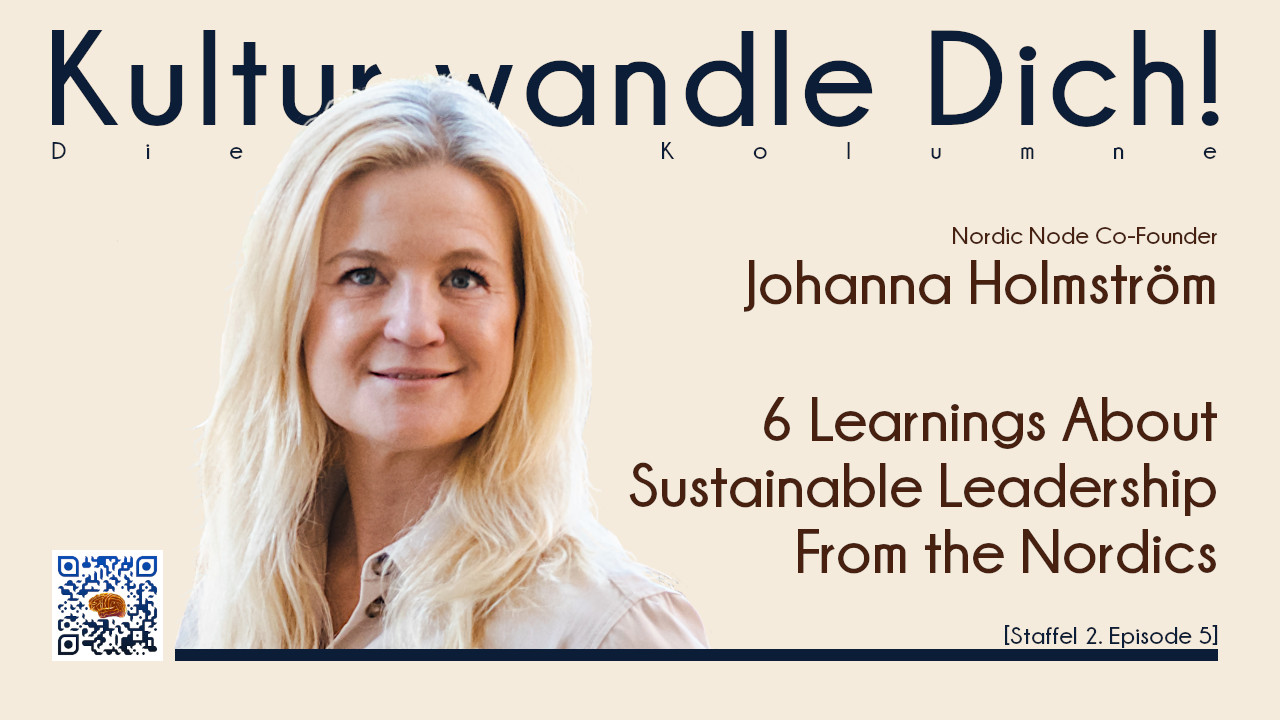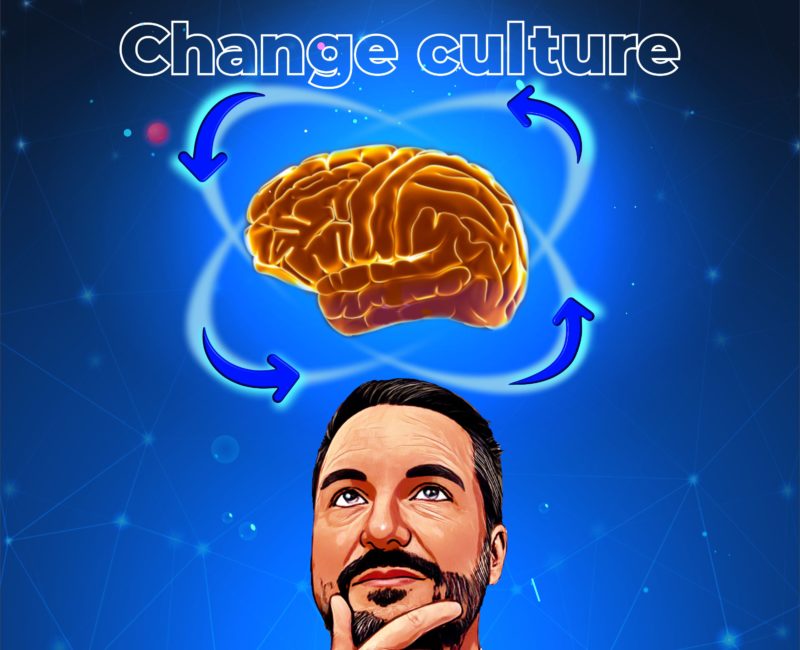
Kolumne Episode 5. Six Learnings About Sustainable Leadership From the Nordics
“If you don’t take a year off after your child is born, in Sweden you are regarded as a bad parent. In Germany or the UK, you are a bad leader”, says Johanna Holmström in a podcast about Female Leadership. It’s not a tradeoff between children and career in the Nordic countries.
Why is Female Leadership so common in countries like Denmark, Sweden or Finland? What can we learn from their way of living leadership in many aspects of professional and private life?
If you company working and living habits in Nordic countries with ones in middle Europe or UK, we can observe quite some remarkable differences:
- Firstly, professional and private lives are more integrated in the Nordics; there is testimony in many aspects, from going out with colleagues, interrupting work to perform private tasks like taking the kids to sports, or simply talking about private topics with colleagues
- As a consequence, it is easier to strike a work life balance; “actually, I moved back to Sweden because I wanted to have a good work life balance”, Johanna emphasizes
- Family duties are prioritized as high as company duties. It is quite common that a meeting has to end at 3:30pm because the boss needs to collect the kids from school. Family affairs, on the other hand, are equally distributed between the parents, without any predefined role models, but with full choice of each parent (which can lead to discussions at time)
- The language doesn’t make a difference between male and female. For example, the sjuksköterska (in German Krankenschwester, don’t try to spell it out, it’s breaking German tongues 😉 can mean a male person as well (or any other gender)
- Not only on the individual level, also on the company level, there are distinct differences: hierarchies are flatter, and decision processes are more inclusive. This makes them a bit slower on the one hand, but it increases impact and sustainability of implementation on the other hand
- Even when you look at the bigger picture how nature is treated, we find 3 out of the top 5 countries in the Environmental Performance Index [1] in the Nordics: Denmark at #1, Finland at #3, and Sweden at #5. Yes, it fair to say that the UK is ranked #2, but Germany only #12
It seems in German and similar culture we more have a staged view on life: there is a stage of education (when we go to school and academia), then a stage of making career (where, please, someone else takes care about kids and everything else), and then – well – we retire and try to make some sense of life (whilst struggling with our health). In the Nordics, there is more a notion of keeping family, friends, colleagues, mental, emotional, and spiritual aspects in balance all the time, or simply speaking: living a sustainable life.
Now, can we just copy some of the regulatory enablers that we find helpful in the Nordics to Germany, and that’s it? Very likely not. Simply because it’s not only about rules and laws, but an underlying mindset. And that is impossible to copy. But here comes the good news: we have a choice to look at things differently and change our mindset (at least over time), so why don’t we start today. As a famous German quote cites: “Es gibt nichts Gutes, außer man tut es”[2]
[1] The EPI 2022 is published by the Environmental Law & Policy Department of Yale University and the International Earth Science Information Network of University of Columbia, in cooperation with the World Economic Forum
[2] ~”There is nothing good, unless you do it”; E. Kästner (1950)
